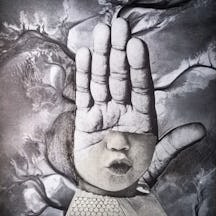Artist Pum Dunbar created five collages to accompany Dolly Sen’s ‘Disability in the post-pandemic world’. These five ‘legends’, also by Pum, reveal more about the collages’ themes of anguish, ambivalence and the agony of autism.
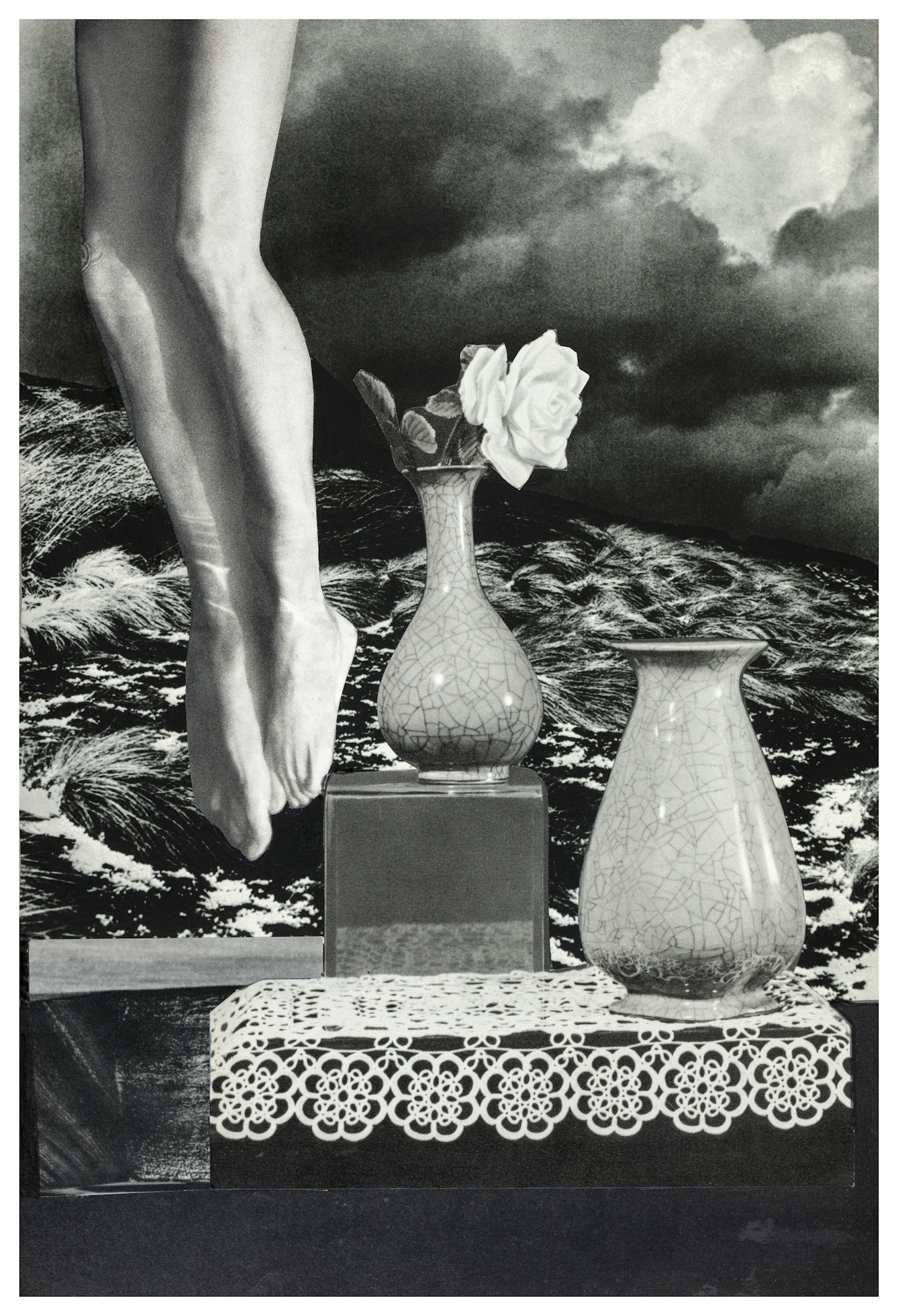
‘Suspended swimmer: still life with the afterlife’
All her life she had swum. She had sea salt in her soul.
Since living in a city, she yearned for the sea and learned to craft a floating poem in chlorine; an aqua-blue-green dance streamlined in a weightless pause. A place where mind became suspended between molecules. A place where her emotions could flow and follow the catharsis of expression.
For ten years she swam in her dedicated ritual. A mile twice a week. The water-work where she let herself learn. It saved her life. It was her place of rest and respite from a mind fighting to find its sense in the meaninglessness of a world before Covid ever came.
The virus came. The pool closed. Her lifeline of long lengths and rhythmic movement was suspended. In the overwhelming anxiety of a body fighting to find itself, she grieves for the swimming routine, her vigorous, rigorous, bi-weekly immersion in her intimate imminence.
Still life, still stuck in a motionless, emotionless stasis, which erupts into weekly meltdowns, she longs for the respite of that watery equilibrium that supported her existence living with autism.
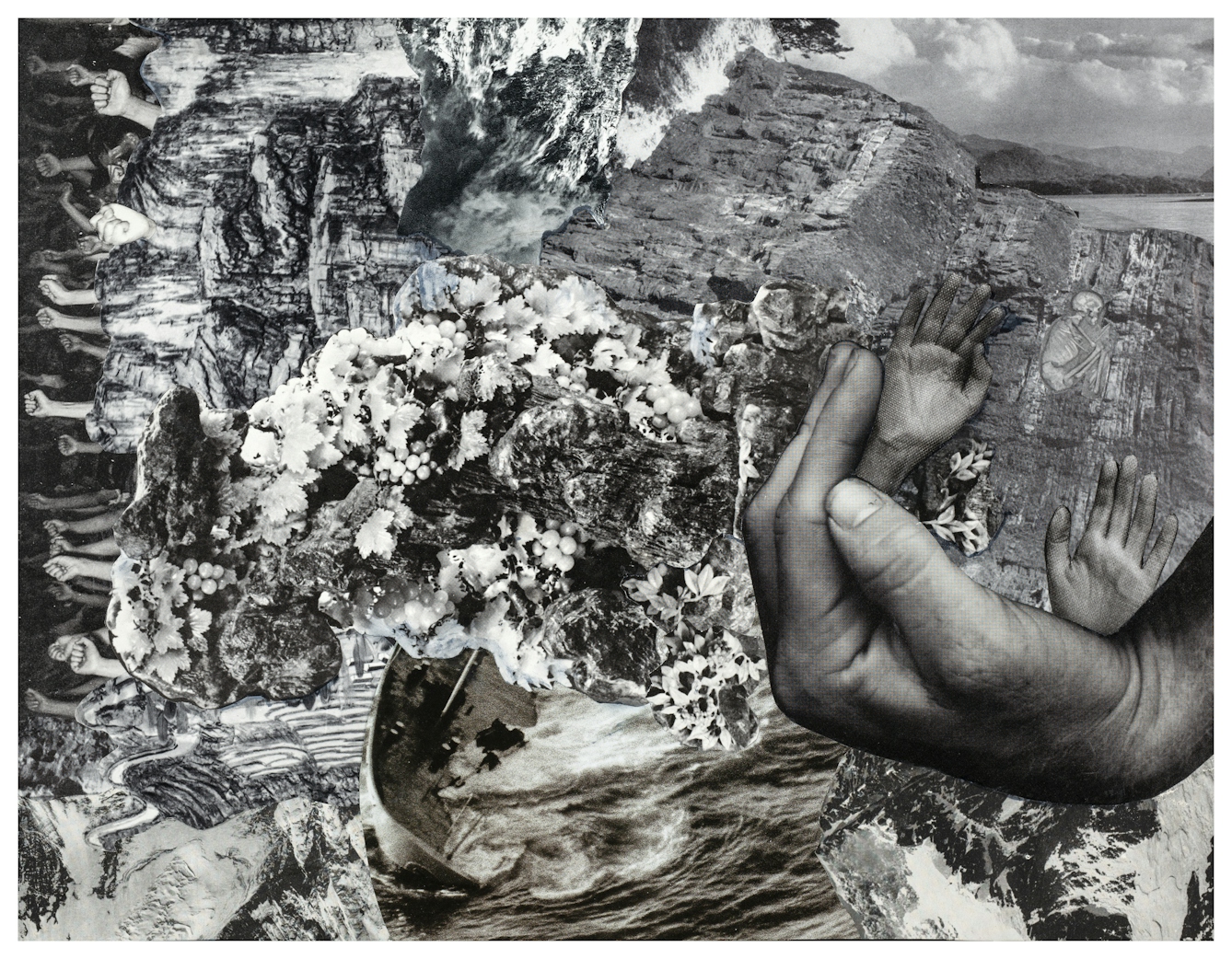
‘The capacity for concern: protect and nurture in a world of storms and disparity‘
Shipwreck, storm, cliffs precipitous. Dangerous rocks and crashing waves of anxiety, and a cloud of loud, raised fists. The vista assaults the viewer’s eye with an arresting surge of urgent movement, clash and collision.
Panacea is found, grounded in a giant, protective hand that cradles two small, expressive, pleading hands, which rise in a sensitive gesture towards the tiny skeleton curled in a foetal position. A reminder of the birth–death cycle of our human existence and of our shared histories, tattooed with pain portraits and suffering.
Before Covid came there were vast pits of anxiety, overwhelming moods, and feeling the senselessness that comes with experience of struggling with waves of grief and disbelief. So many suffer unseen, unheard, in private pain. Pain is so deeply personal.
Pandemics are extraordinary world events. Pum hopes this pandemic can help humans re/view and respond to the world we live in.
By accepting our inherent vulnerability and recognising the deep relationship between our human nature and our capacity for nurture, we can shape our being to be kind. Kind to one another, and kind to our planet and its communities of animal, mineral and vegetable kingdoms.
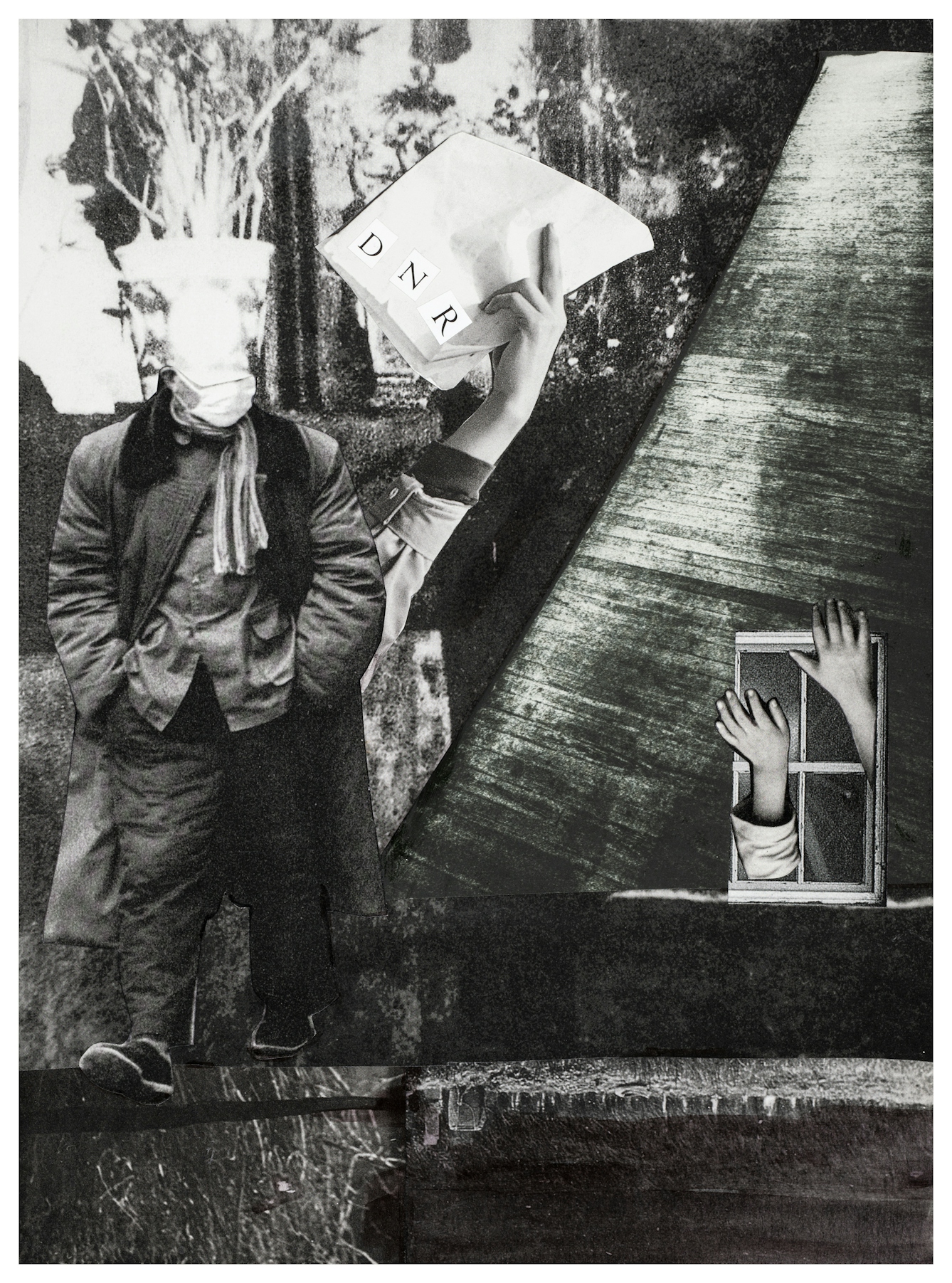
‘Careless attitudes cost lives worth living: careful suffrage and the clinical trial of a DNR disorder’
He stands accused of a careless attitude. This man’s dangerous cynicism; he shrugs off the clinical decisions made erroneously when putting a price on a life. Who decides which life is worth living?
Hands reach out and implore consideration for human concern. Suffering encompasses immeasurable wisdom and compassionate wealth. The tender tension they mention when it comes to life and death, care, full of suffrage and sacrifice.
A life is lived through lifelong learning, the yearning to understand oneself and to understand one another. We are guardians of our collective environments.
Ecology speaks and we must listen. The virus comes to teach us things they can’t teach in schools. Lessons in letting go and learning to live in relation to our needs. A lesson lived in the fragile balance of life and death, and the destiny discovered in the patterns of a human being.
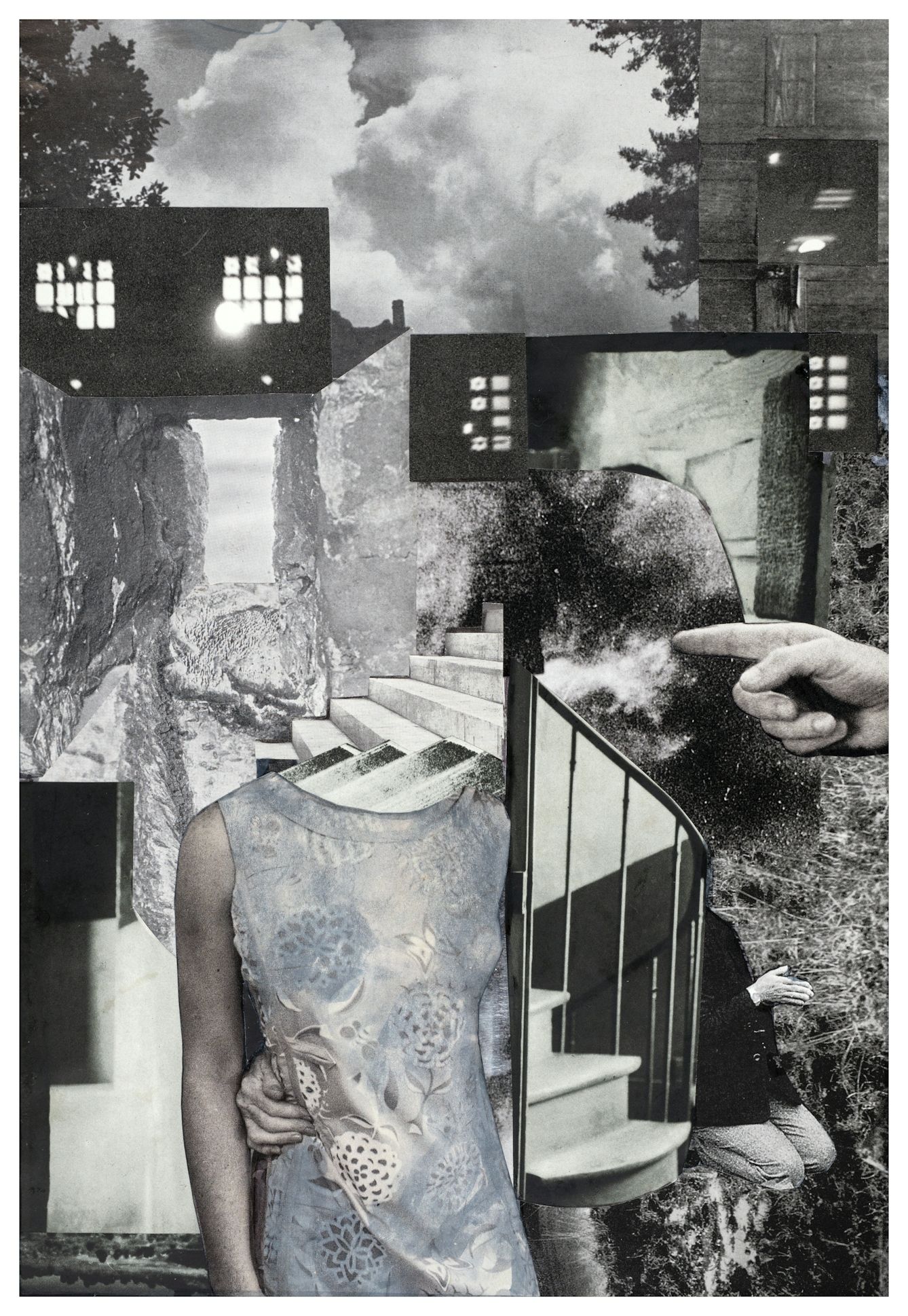
‘Access to affinity: the faceless grace of compliance’
They pointed fingers, but missed the point. Faceless flights of stairs and staring eyes on mouthless faces. The places they could not go to. Oh, for the sweet grace of compliance, a prayer for peace and acceptance, a scientific hymn that silences dissent.
She went home and hid and held her ancestors’ hand, the hand that held the wisdom of past generations’ vast upheavals and plagues. She felt the affinity and she counted her blessings.
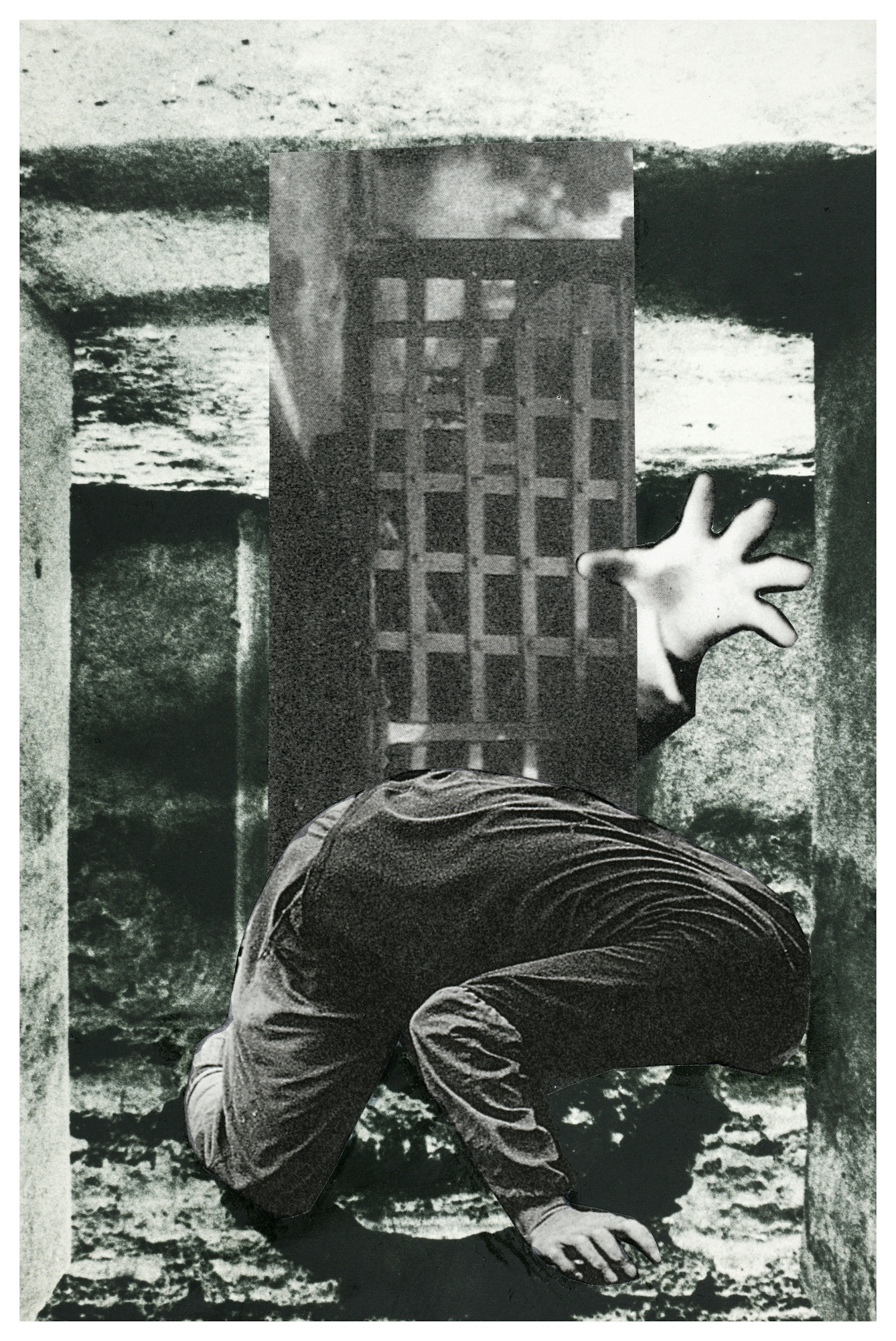
‘Struggle to find the freedom to console’
Prisoner of a condition, on condition of parole in a lockdown world where a sudden peace has descended and ended her battles with busy streets. The paradox of autism is an almost inhuman need for solitude, in order to breathe and process a body and brain inscribed with a biological difference.
In isolation, withdrawn from the social field, Pum can make sense of her senseless, fragmented sensory distortions and gather her mind’s eye for guidance.
Here in this collage, our prisoner is struggling to find the freedom to console a whole population who find their social appetites denied, sanctioned, disallowed. Contact controlled behind an iron grid of regulations that starve social connection in order to stave off the spread of a virus that lives among us.
About the artist
Pum Dunbar
Pum is an artist whose creative practice is driven by her fundamental need to make sense in order to cope and grow. Her art-making plays an integral part in her ability to manage her life with autism. Her collage praxis is therefore fundamentally private in its origin. It supports her to process and develop insights into her ideas, feelings and experiences. For Pum the art-making process is the by-product of human organic intelligence; her collages are affective reflections of lived experiences. Her creative praxis is underpinned by practice-led research, a growing understanding of affective neuroscience and a commitment to lifelong learning.
